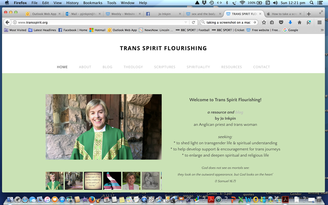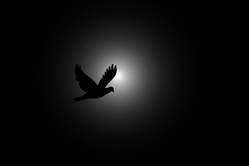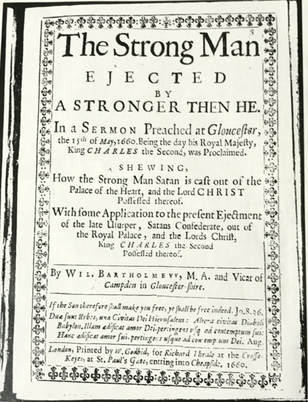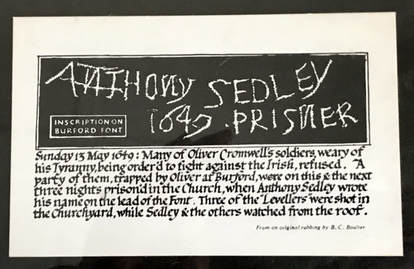 Trans Spirit Flourishing is the name of a new website I have produced, which seeks to shed light on transgender life & spiritual understanding and to help develop support and encouragement for trans people in our varied journeys. For spirituality is essential to human beings but we have often used it ignorantly. The unnecessary and deeply hurtful Australian postal survey on marriage equality has sadly demonstrated how many Christians are still not aware of the devastating damage which has been done and which continues to be inflicted on LGBTI+ people by ideas and practices which we desperately need to leave behind. As a result the deep spiritual life and insights of so many LGBTI+ people is often neglected. For transgender and gender nonconforming people this is a particular tragedy as our journeys are so much bound up with exploring and expressing our deepest identities. Things are changing however, even if some of us will no doubt continue to bear the pain of the struggle. Trans spiritual flourishing for some sections of religious faiths may never happen, but who knows - God is amazing in surprises! However trans spirit flourishing can begin, or develop further, right and here and now, for everyone . My hope is that this resource can add, and point, to sources of light and encouragement - both, and above all, for those struggling with gender identity themselves, and for allies and those genuinely seeking understanding. We are living through challenging times, with many demanding issues of ecology, reconciliation, peacemaking, poverty, and care for refugees and other vulnerable people. Gender diversity has so often been a battlefield. May we make of it a source of grace for the larger journey of healing and wholeness for all.
0 Comments
 Isn't it amazing how, even though we may not knowingly prepared for it, we can often enter a space set aside for intentional spiritual growth and be caught up, affirmed and transformed by it? This was again my experience this week as I put the finishing touches to a new website I am creating - which will share something of the growing spiritual resources and reflections being produced by transgender Christians across the world, together with others of my own. Focused on thoughts of this, I made my way to the beautiful Chapel of the Holy Spirit here on our college site. What I encountered brought fresh joy to my soul, placing in greater profile and context the purpose of that work. For it was a powerful reminder to me, as a transgender person, not only that, in the words of Psalm 139, I am 'fearfully and wonderfully made', but that all of us, whoever and whatever we are, exist in a mystery which is both far beyond our understanding (certainly more than straightforward binary ideas of good and evil, male and female) and yet also closer to us than the identities we have or for which we struggle. Such is the gift of loving spiritual intention, in people, place and prayer... Humpty Dumpty sat on a wall.
Humpty Dumpty had a great fall. All the Pope’s horses and all the Pope’s men (and women), couldn’t put Humpty together again. For good and ill, the era we know as the Reformation has hugely shaped us. It involved immense fragmentation: both a breaking down and a breaking open. Like Humpty Dumpty, that which went before had ‘a great fall’ and could not be put together again as it had been. Especially within Christian life, it has thus bequeathed so many features we simply take for granted. Some have lasting value. Others are much more questionable. This includes the very existence of different Christian traditions, in what, from the 19th century, we have termed denominations. This was not, of course, an intended outcome. Indeed, it would have seemed anathema to any Reformer, as well as to the Church of Rome. Yet it is part of our Reformation inheritance. So what do we make of this, for God’s continuing mission? What is worth keeping? How might we move on together? This reflection is not a traditional potted history. Nor does it seek to draw us into comparisons of our different Christian traditions, never mind reassemble past dynamics and rhetoric. Instead, it outlines briefly both vital differences and also important similarities between that age and our own. In doing so, it identifies a number of negative features which often mar our churches and world. It also suggests a number of positive features which can heal and take us forward. Hopefully, in the contemporary spirit of ‘receptive ecumenism’, these may then provide a basis for assessing which Reformation gifts we will own together and which we will leave behind. What else, we might then ask, do we need for our journey onwards today?...  One of my most fascinating distant ancestors (on my mother's side) was William Bartholomew, who was Vicar of Chipping Campden between 1636 and 1660. As such he lived through many of the epic events of 17th century England: remarkably holding his living from the age of the 'Personal Rule' of Charles 1, even in the upheavals of civil war, the Commonwealth and Protectorate, through to the return of the monarchy. So was he like the fabled 'Vicar of Bray', a by-word for holding on to his ecclesiastical office irrespective of principle? Or was there something more at play in his career? The immediate historical records themselves can be confusing. On the one hand, some have portrayed him as an 'ardent Puritan', perhaps on evidence which suggests he was a major player in the suppression of Dover's Games on the Cotswold downs after 1643. Yet he also appears to have been harassed by the Committee of Plundered Ministers and forced to spend 200 pounds of his own money to avoid trouble. Indeed the memorial in Chipping Campden Church records him as a 'fearless advocate (even in the worst of times) of the Royalist cause.' The latter seems the most likely, as, on Charles II's return from exile, he had the honour of preaching the Restoration sermon in Gloucester Cathedral (see front page pic above right), as well as speedily restoring to his parish the Church of England's Prayer Book which had been proscribed. What then went on in his ministry which enabled his stabilitas through such dramatic changes? The answer needs more research (!), which my beloved late aunt Molly began with my parents a few years ago and which I would love to follow through with at some point soon. My historical hunch however is that, like Jesus' words in the story of Mary and Martha, William Bartholomew effectively continued with 'the one thing necessary': waiting on God in Christ even in the toughest circumstances, continuing to read and expound the Scriptures, and exercising a deeply appreciated 'cure of souls' (earning 'the love and praise and admiration of all', according to his church memorial). As such, his life tells us both something about the complexity of English religion in that tumultuous period (much broader, more localised and even less ideological than simplistic history might assume?) and also that the essence of Christian priesthood (lay or ordained) is not defined by obvious externals (such as the presence or otherwise of episcopacy or authorised liturgy, helpful though they may often be). That may point us to the deepest mystery of all.  From my early childhood, I have always been engaged in exploring what liberty means. I grew up fascinated by history for that reason and it is not for nothing that the pictures over my office desk resonate with some of the mightiest of English struggles for liberty: a copy of the Magna Carta, photographs and records of female suffragists, and, most poignantly of all, a facsimile of the Leveller Anthony Sedley's scrawled protest on the font of Burford Church (see picture to the right). Such epic battles, mixed in as they often were with religious identity and aspiration, both challenge and inspire. They are in parts a record of gruesome hurts but also witness to the Christ-like 'courage to be', to re-imagine, and to 'turn the world upside down' Imagine then my frequent puzzlement and dismay, when some people, in comfortable places, speak about religious liberty as merely the right to hold and publicise curious opinions and practices or to protect privilege. Of course I would not wish to deny others the first of those things. Yet liberty is so much more... |
AuthorJo Inkpin is an Anglican priest serving as Minister of Pitt St Uniting Church in Sydney, a trans woman, theologian & justice activist. These are some of my reflections on life, spirit, and the search for peace, justice & sustainable creation. Archives
July 2024
Categories
All
|
 RSS Feed
RSS Feed